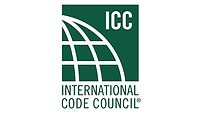Philadelphia modernizes its plumbing code using the International Plumbing Code

The city of Philadelphia modernized its plumbing code based on the 2018 International Plumbing Code (IPC). The IPC is one of a family of correlated and coordinated codes published by the International Code Council – the International Codes (I-Codes) – that are the most widely used and adopted set of building codes in the world.
Mayor Jim Kenney signed the bill in September, completing a process that began in 2017, when he signed an executive order for the reestablishment of the Plumbing Advisory Board to propose substantial updates to the Philadelphia Plumbing Code. The new code helps ensure transparency and consistency in the city’s plumbing infrastructure and incorporates the latest technology to promote cost savings, energy efficiency and water conservation. The updated city code also retains some of the current provisions of the Philadelphia Plumbing Code, such as those related to single stack waste and vent systems, to provide consistency when altering existing buildings.
“According to a comprehensive independent study performed by Henderson Engineers and Hatch’s Sustainable Eco-nomics group, counties that applied the IPC over the past 12 years have saved $38 billion in construction costs, emitted one million fewer tons of carbon dioxide, and realized 166,000 additional jobs,” said Code Council CEO Dominic Sims. “Philadelphia has taken a major step toward promoting public health and safety and strengthening the city’s economy by updating their plumbing code based on the IPC. The Code Council has been working closely with stakeholders in Phila-delphia to provide assistance as needed for this important modernization.”
Looking for a reprint of this article?
From high-res PDFs to custom plaques, order your copy today!









